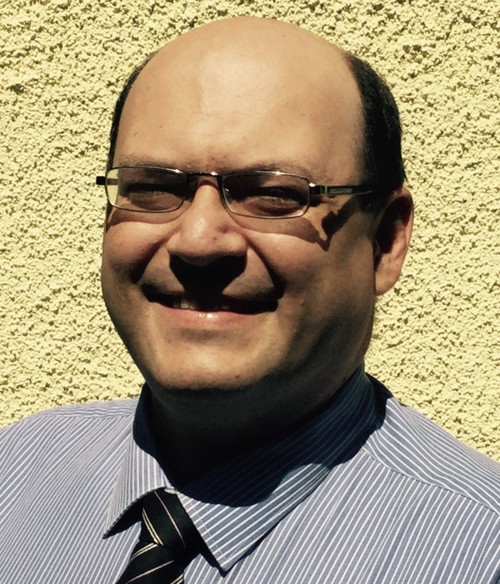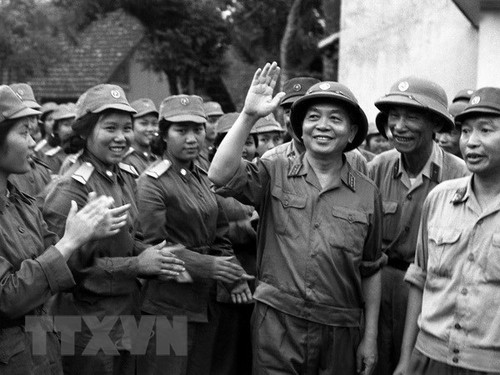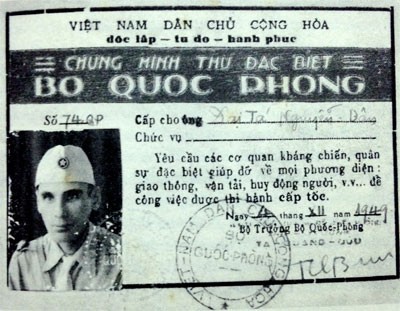 Austrian scholar Patrick Horvath. Austrian scholar Patrick Horvath. |
The people’s hero
Vo Nguyen Giap was born on August 25, 1911 in Le Thuy in central Vietnam. He was the son of a teacher who supported Vietnam’s autonomy from foreign rule. In his youth, Giap attended the same high school as later Vietnamese President Ho Chi Minh. As a university student he was sentenced to prison by the French colonial power. He received a law degree from Hanoi University and became a high school teacher for history.
Giap joined Ho Chi Minh’s Vietnamese independence movement Viet Minh and gradually became its military leader. His brilliance as a military strategist led to his winning the decisive battle Dien Bien Phu in 1954, which ended the French colonial regime.
In the later conflict with the US, he led the forces of the North to victory and forced the Americans to leave Vietnam. In reunited Vietnam, Giap served as a defense minister and deputy prime minister. Giap died in Hanoi at a high age in 2013. This year, on August 25, 2021, the Vietnamese national hero would have turned 110 years old.
 General Vo Nguyen Giap visits military officers in 1973. (Photo: VNA) General Vo Nguyen Giap visits military officers in 1973. (Photo: VNA) |
Austria and Vietnam – different, but connected
The differences between Austria and Vietnam are very obvious. The two countries are located 9,000km away from each other.
The religious tradition of the Central European and the Southeast Asian state is highly different. While Austria was shaped by Catholic Christianity, Vietnam’s roots lie in Buddhism.
Austria is dominated by the cool and volatile climate of the high mountains of the Alps and therefore loves to import citrus fruits from much warmer regions like Vietnam.
Additionally, Austria is much smaller than Vietnam, counting only 8.9 million instead of 98.2 million citizens.
Austria’s considerable wealth comes from its highly developed industry, which differs a lot from Vietnam’s widely agrarian character. On the other hand, Vietnam’s economy shows a much higher dynamic than Austria’s ageing society.
What could such different countries possibly have in common?
I believe that both countries share a similar historical experience that influences their collective identities until today.
In the 19th century, Austria also had to struggle against French expansion in the whole of Europe. French Emperor Napoleon won the battle of Austerlitz in 1805. As a result, Austrian province Tyrol became part of Napoleon’s ally Bavaria, a German kingdom located North of Tyrol.
Tyrol is located between Germany and Italy and is an area of great strategic importance in Europe.
When the Bavarians started the conscription of Tyrolean young men for Napoleon’s expansionistic armies, the Tyrolean uprising broke out. Andreas Hofer, a man with humble origin, rose to become leader of the Tyrolean freedom fight.
Orphaned at a young age, he was the heir of his father’s restaurant and a trader of horses and wine. He led Tyrolean forces to victory in the battle of Bergisel, a mountain near Tyrol’s capital Innsbruck. Unfortunately, the Tyrolean uprising was brutally suppressed and Andreas Hofer was later executed on Napoleon’s direct order in the Italian city of Mantua. Until today, Hofer is considered Tyrol’s national hero.
After the failure of Napoleon’s campaign against Russia, Tyrol was freed and reunited with Austria.
The famous museum “Tyrol Panorama” in Innsbruck today shows the weaponry used by the Tyroleans against the French. Their arsenal consisted of hunting rifles and and agricultural equipment – everything that was at hand in a short period of time. On the other side there were the modern military rifles and bayonets of a well equipped and professionally organised French army.
In the end, the will to freedom of the common people won – but the price was high. The situation in the Vietnam War was very similar.
Both Austria and Vietnam know the value of freedom and fought against foreign suppression. Today Austria and Vietnam are international partners. Thanks to the political work of Austrian chancellor Bruno Kreisky (1970-1983) Austria was among the first countries in the world to diplomatically recognize North Vietnam.
The balance of trade between the two nations is highly positive from a Vietnamese perspective due to the fact that Austria buys Vietnamese products for nearly one billion euros per year.
In future Austria’s highly developed industry has the potential of being an important investor in Vietnam.
Ernst Frey, an Austrian fighting side by side with general Giap
Austrian Ernst Frey (1915-1994) was one of General Giap’s closest allies. Many Vietnamese know him by his Vietnamese alias Nguyen Dan.
Frey was a Communist of Jewish descent and had to flee from authoritarian regimes in Austria for political reasons. He joined the Foreign Legion and later the Communist and Viet Minh movement in Vietnam. His military experience enabled Frey to contribute significantly to the development of the resistance movement.
 Eric Frey’s special ID issued by Vietnam’s Defense Ministry. Eric Frey’s special ID issued by Vietnam’s Defense Ministry. |
Eric Frey’s book “Vietnam, mon amour” is an exciting autobiography, available in German at Viennese publishing house Czernin. His close relationship to Giap becomes obvious, when Frey describes his own deep emotions when being promoted Colonel on Giap’s order for military achievements or how he defended Giap’s life as a body guard and human shield against approaching French troops.
Frey later returned to Austria. Shortly before his death, he wrote to Giap the following moving words: “All of the love which I feel for Vietnam and its people focused in a certain sense on your person, and your cordial message have given me immense pleasure. (…) To me, Vietnam – despite all language problems - was my home, which I lost in 1950. It was the only country for which I was willing to shed my blood for.”
The friendship between Frey and Giap will guide the partnership between Austria and Vietnam in the future.
Peace – a shared vision
Five years ago, in 2016, a parliamentary delegation from Hanoi visited the Austrian Parliament in Vienna. When welcoming the Deputy Chairman of the Vietnamese Defence Committee, Tran Dinh Nha, Austrian Member of Parliament Harald Troch reminded of the words of national hero Vo Nguyen Giap: “The most important aspect of the Vietnam War is that never again there will be war.”
Giap’s peace-political plea turned out to be a suitable guideline for the following talks in Austrian Parliament, ranging from a peaceful solution to conflict in the South China Sea to further economic cooperation between Austria and Vietnam.
In my view, Giap’s saying expresses a common experience of both Austria and Vietnam. In the past, Austria suffered from the horrors of two World Wars and also experienced a short civil war in 1934. This historical experience led to the inclusion of the policy of neutrality in the Austrian Constitution.
Austria today only has a small army with a purely defensive function and does not take side in international conflicts. Austria instead offers good services, mediation and humanitarian help to everyone.
Vietnam has successfully defended its freedom against colonialism, which is a very important achievement. Unfortunately, there were many victims of the war and the people of Vietnam had to suffer a lot. I am certain, that it is in the interest of every Vietnamese to prevent Vietnam from being an international battlefield ever again. This common historical mission unites Austria and Vietnam and I truly hope, that a partnership for peace will develop between the two nations.
At the end of the article, I warmly congratulate Vietnam’s people and government on the anniversary of their national hero Vo Nguyen Giap. From the bottom of my heart, I wish both Austria and Vietnam a common future of freedom, peace and brotherhood.